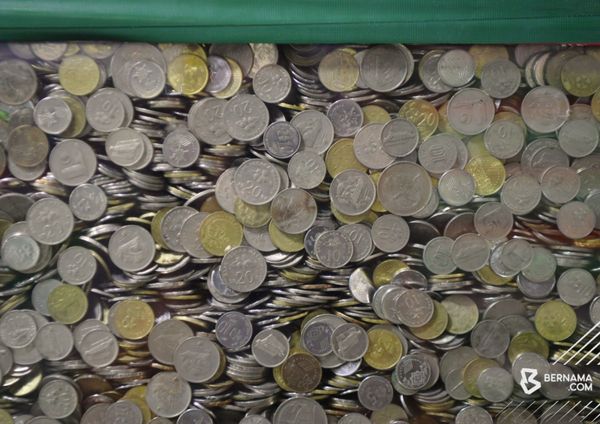By Danial Dzulkifly
SHAH ALAM, June 23 — With the expanded Sales and Service Tax (SST) set to take effect next month, consumer groups are calling on the government to zero-rate essential services, expand the Budi Madani cash aid programme, and introduce a national price transparency framework to ease the burden on lower- and middle-income households.
They also proposed targeted subsidies, clearer breakdowns of SST charges, and stricter enforcement to ensure that the broader tax scope does not unfairly impact consumers.
The Federation of Malaysian Consumers Associations (Fomca) and the Consumers Association of Penang (CAP) warned that without firm oversight, businesses may seize on the July 1 tax changes to justify price hikes, particularly in sectors where pricing is unregulated or unclear.
Fomca chief executive officer T. Saravanan said the group remains concerned that the tax expansion could be misused to push prices well beyond the actual tax burden.
“Many businesses often took the opportunity to raise prices beyond the actual tax burden, using the tax change as a convenient excuse to increase profit margins,” he told Media Selangor, pointing to similar trends during the Goods and Services Tax (GST) rollout in 2015 and the subsequent return of the SST in 2018.
CAP president Mohideen Abdul Kader echoed the concern, warning that price manipulation remains a risk without proactive enforcement.
“There is always the possibility that businesses may take the opportunity to raise prices beyond what is considered reasonable.
“The Domestic Trade and Cost of Living Ministry (KPDN) should therefore actively monitor the implementation of the expanded SST. Consumers should also be encouraged to report cases where they believe sellers are overcharging,” he said.
Under the revised tax regime, six new service categories, including logistics, private healthcare, education, beauty services, and construction, will be covered under SST.
Non-essential goods will be taxed at either five or 10 per cent, while essential goods remain exempt.
Saravanan added that many of the newly taxed services, including childcare, home repairs, and courier deliveries, are necessities and not luxuries, warning that the lack of standardised pricing in these sectors makes consumers especially vulnerable.
“To address this concern, we urge KPDN to implement more robust safeguards. These should include publishing clear comparisons between pre-SST and post-SST prices for affected services and goods, enabling consumers to identify unreasonable increases,” he said.
[caption id="attachment_360103" align="aligncenter" width="1236"] Members of the public at the Inland Revenue Board office to apply for the Budi Madani diesel subsidy initiative, in Bangi on June 11, 2024. — Picture by BERNAMA[/caption]
Members of the public at the Inland Revenue Board office to apply for the Budi Madani diesel subsidy initiative, in Bangi on June 11, 2024. — Picture by BERNAMA[/caption]
Saravanan also proposed mandatory disclosure of service rates and SST breakdowns by affected businesses, alongside better access to complaint channels and increased ground enforcement.
“Authorities should also enhance the visibility and accessibility of consumer complaint channels, through mobile apps and hotlines, so that complaints can be lodged quickly and followed up promptly,” he said.
Meanwhile, Mohideen raised another major concern over Malaysia’s reliance on food imports, cautioning that taxing items like apples, oranges, and grapes could worsen the strain on household budgets.
“Malaysia currently imports approximately 70 per cent of its total food supply, including beef, lamb, dairy products, baking ingredients, pasta, as well as temperate fruits and vegetables.
“This high dependency on imported food results in a substantial outflow of ringgit and poses a threat to national food security, particularly in the context of climate change and geopolitical uncertainty.
“We are also concerned about the declining availability of local fruits, to the extent that Malaysia is now importing certain ‘local’ varieties once abundantly grown in our orchards and gardens from Thailand,” he said.
As such, Mohideen urged the government to invest in domestic fruit cultivation to stabilise prices and improve availability before considering any move to impose SST on such items.
Concerns over imported fruits being taxed under SST have also drawn a response from Deputy Prime Minister Datuk Seri Ahmad Zahid Hamidi, who said the Cabinet will revisit the decision to ensure it would not straddle low-income families.
To cushion the SST’s impact, Saravanan also called for an expansion of the Budi Madani cash aid programme, with simplified registration and financial support scaled to match rising living costs.
“The registration process must be simplified to ensure eligible households do not fall through the cracks, and the financial support provided should be adjusted to reflect the increased cost of living brought about by the SST,” he said.
Saravanan also proposed the creation of a National Price Transparency Framework, modelled after the GST-era awareness push, to promote pricing clarity and accountability.
“A national SST awareness campaign should be launched to inform consumers about which sectors will be affected, how price changes should be understood, and how to report any cases of profiteering.
“It is crucial that the public knows how to distinguish legitimate tax-related price adjustments from exploitative practices. This campaign should also educate service providers about compliance and ethical pricing,” he said.
[caption id="attachment_309162" align="aligncenter" width="1530"] People buy food items like chicken, eggs, meat and vegetables at a farmers’ market in Kuala Lumpur, on April 18, 2023. — Picture by BERNAMA[/caption]
People buy food items like chicken, eggs, meat and vegetables at a farmers’ market in Kuala Lumpur, on April 18, 2023. — Picture by BERNAMA[/caption]




